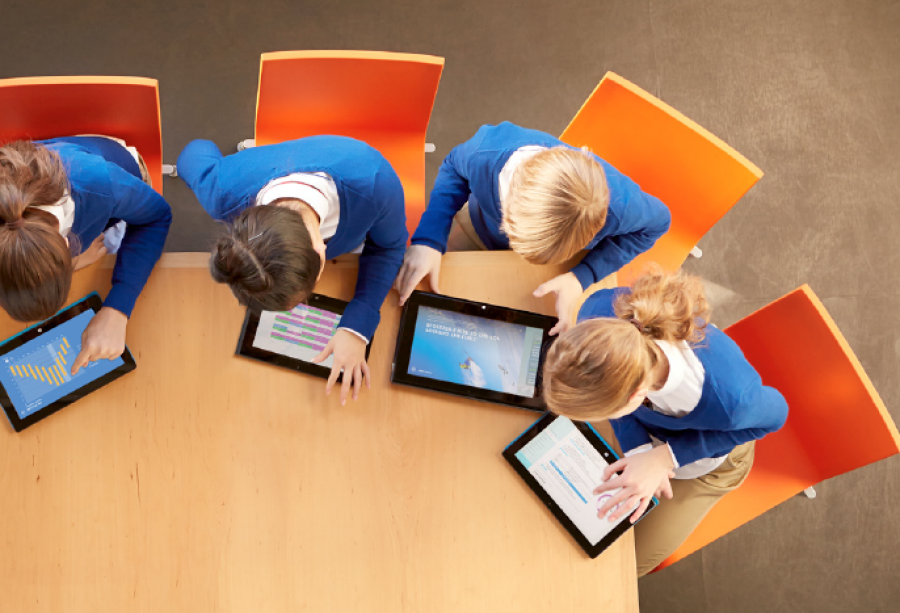“Teachers will not be replaced by technology, but teachers who don’t use technology will be replaced by those who do.” Sheryl Nussbaum Beach
As the kids today are engaged in technology most of the time, it serves as a great opportunity for the institute to harness it for educational purposes. With the utilization of technology and the internet, teachers can create a better learning environment in many ways. By incorporating technology in the classroom, tutors can engage students, perk up collaboration, and most importantly make learning fun! Let’s discuss 10 dazzling ways in which technology serves advantages for both the teachers and students in forming a conducive learning environment:
#1: Students want it
In this technology-driven world, tutees expect to use technological tools in the classroom in any way possible. It is pretty perceptible that students are constantly engaged with technology outside the classroom. Technology can create a new path to erudition which the students will be keen and enthusiastic to follow. Schools must integrate technology into classrooms to retain the attention of this tech-savvy generation.
#2: Supports Teachers
According to PBS Learning Media Survey, 74% of tutors were found admitting that technology allows them to strengthen their courses. Another survey carried out by Huffington Post revealed that “78 percent of Kindergarten through Middle School teachers agree that technology has had a positive impact on their classroom — and that’s just the start.” For new tutors, technology is today a prerequisite for teaching. Teaching with technology can help intensify pupils’ learning since it can assist in the attainment of instructional objectives.
#3: Instant Access to Information
Technology allows tutees to constantly access current information, which goes beyond the description provided in the schoolbooks. If students are stuck in any problem they are well aware of the phrase “Just Google it!” where information is just a touch away. Digital natives need to access information instantaneously and through the aid of technology in the classroom, we can provide them just that.
#4: Students Collaboration
According to a research carried out by U.S. Department of Education, many tutors affirmed that technology-facilitated students’ are often cooperative. Moreover, student-to-student collaboration, mentoring, and peer tutoring was observed as the unforeseen outcomes of technological incorporation.
So the results are in, technology can be a great means to boost students’ interactivity and collaboration with one another. In addition, Technology in the classroom makes it easy for tutees to commune in a familiar fashion. Tutees can not merely work jointly on assignments, but can also communicate readily and share their work and other updates online.
#5: Students Participation
According to James Paul Gee, “When students use simulations, games, videos to learn, in orde3r to solve the problem they have to critically think, and transfer knowledge from other learning experiences to other.” And that is a pretty nice thing. Technology forms new elbowroom’s to make learning elating and exciting. Technology can foster a lively participation in the learning process when we integrate education with it such as online collaboration tools, clickers and Smartphone, and lecture-capture and other tools.
#6: Fun and exciting
Interactive lesson plans allow teachers to make dreary subjects such as geometry, history etc into fun and engaging subjects. Using technological tools, we can establish an active learning environment in the classroom just about any subject. For instance, by the use of touchscreen technology and online presentation, the lectures can be made more participative; and using educational games via iPods and tablets, we can allow learners to get involved in any subject. Technology makes it fun which enhances the student’s capacity for learning.
#7: Digital Literacy
Today’s marketplace is in crucial need of tech-savvy applicants. When we incorporate technology in the classroom we actually ingrain in tutees the technological skills which prepare them for the digital economy. A study conducted by Comitias disclosed that 90% of the pupils said that using technology during lessons would help them to prepare for digital future, as the upsurge of technology is not going to slow down any time soon. Tutees that use technology today will eventually become proficient in using it tomorrow in the marketplace.
#8: It is cheap
In traditional paradigm of education, you need textbooks which can get costly, as you need to buy the updated version books time by time. With technology, digital text material is colorful intriguing and up to date everything lasts for years and is more captivating than textbooks. In addition, the convenience factor also makes it a preferred choice among the teachers and students.
#9: Great Assessment Tool
Assessing students in traditional forms like grading and giving feedback routinely can be rather time-consuming. Technology can provide plenty of tools teachers can use to assess students. Couples of noteworthy tools are My Students Progress and The Teacher Cloud which are brilliant tools to track students’ progress.
#10: Technology in Classroom is the Future
One thing that educators cannot deny is that the world is moving ahead rapidly and schools in this regard have to equip tutees with the expertise to survive in the competitive world. With the advent of technology on the educational sector, teachers can abreast with new learning methods and expedite exciting student for engaging in learning programs. Besides, technology allows accommodating different learning styles for different children and enable tutors to make a difference in students’ education.
About the Author
Kellim Worthington is an education writer at UK Assignment Help Service. She uses her knowledge and experience to provide useful content in the field of education. He holds and an M.S.Ed. Degree from The University of Exeter at Cornwall.
